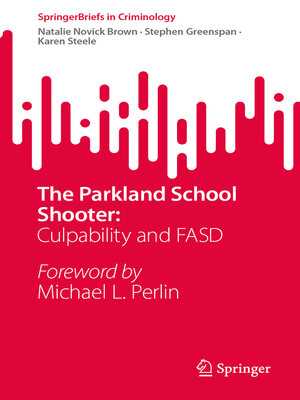The Parkland School Shooter
ebook ∣ : Culpability and FASD · SpringerBriefs in Criminology
By Natalie Novick Brown

Sign up to save your library
With an OverDrive account, you can save your favorite libraries for at-a-glance information about availability. Find out more about OverDrive accounts.
Find this title in Libby, the library reading app by OverDrive.



Search for a digital library with this title
Title found at these libraries:
| Library Name | Distance |
|---|---|
| Loading... |
This brief explores the justification of the death penalty, using the 2018 Marjorie Stoneman Douglas High School shooting in Parkland, Florida, as a case study. The authors argue that when an offender's impairments severely impact their ability to make rational decisions, the death penalty is unjustified, regardless of the crime's severity. The book examines the case of Nikolas Cruz, the school shooter diagnosed with fetal alcohol spectrum disorder (FASD), including:
By focusing on the highly controversial Cruz case, the authors—key experts from the trial—offer insights into FASD and its often-overlooked role in determining criminal responsibility and sentencing. This book is essential for forensic psychologists, psychiatrists, mental health professionals, FASD/DD specialists, researchers, and legal professionals involved in death penalty defense work.







